S’pore Writers Fest 2015: Why we should embrace this year’s genre-bending edition
SINGAPORE — Here’s something that might raise a few eyebrows: Flip through the teaser guide to this year’s Singapore Writers Festival and the very first event you’ll see on the list is a double-bill concert featuring homegrown instrumental post rock bands In Each Hand A Cutlass and I Am David Sparkle.
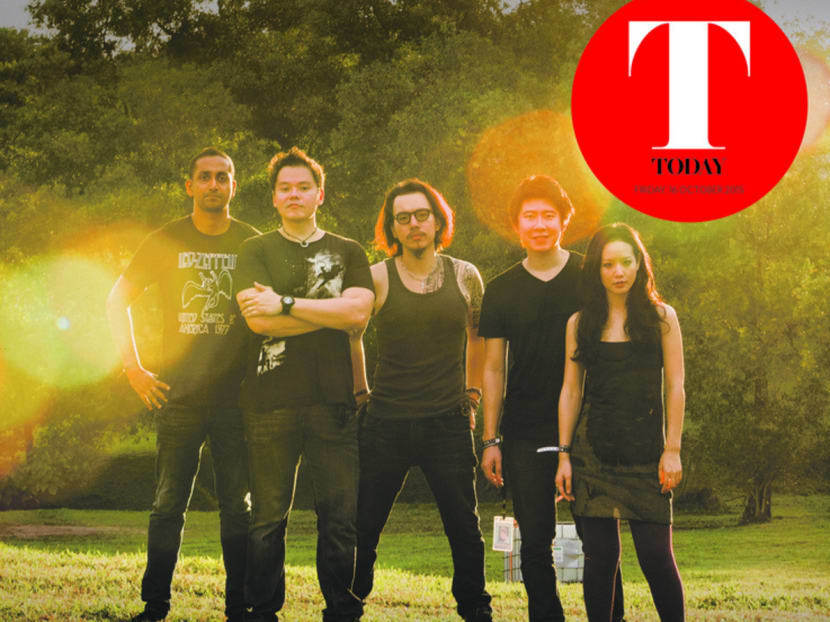
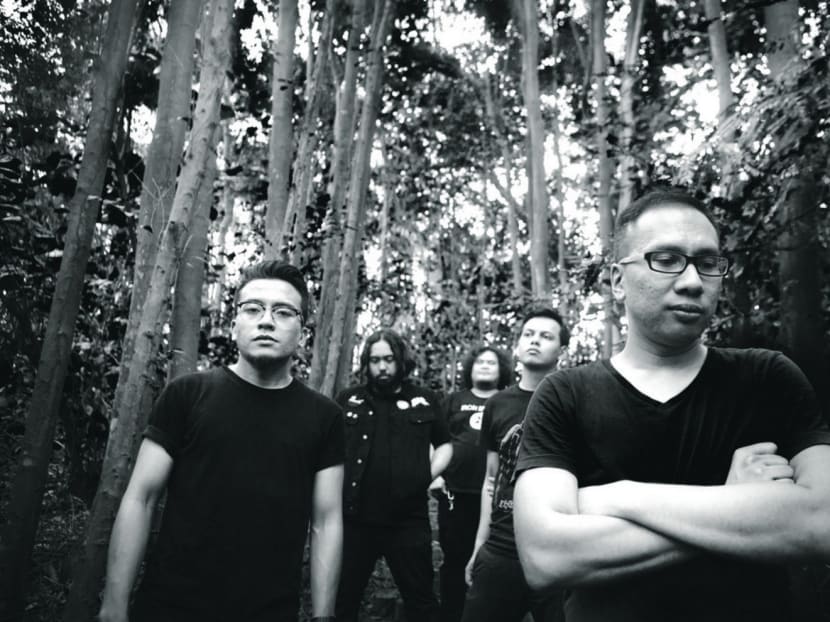
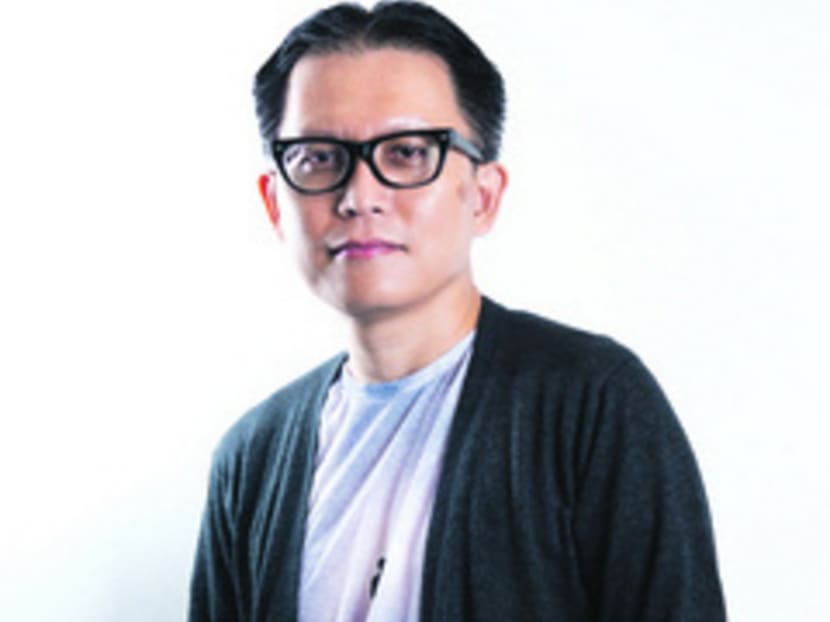
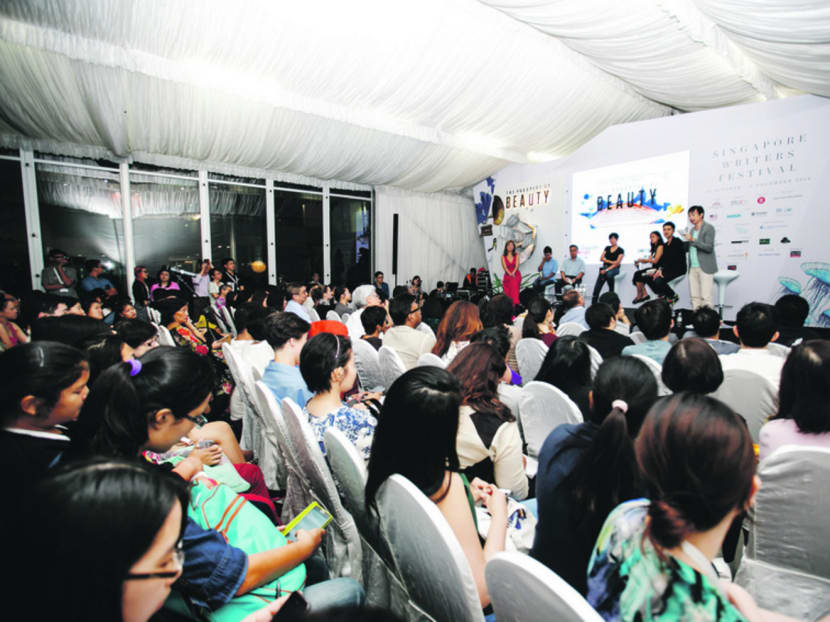
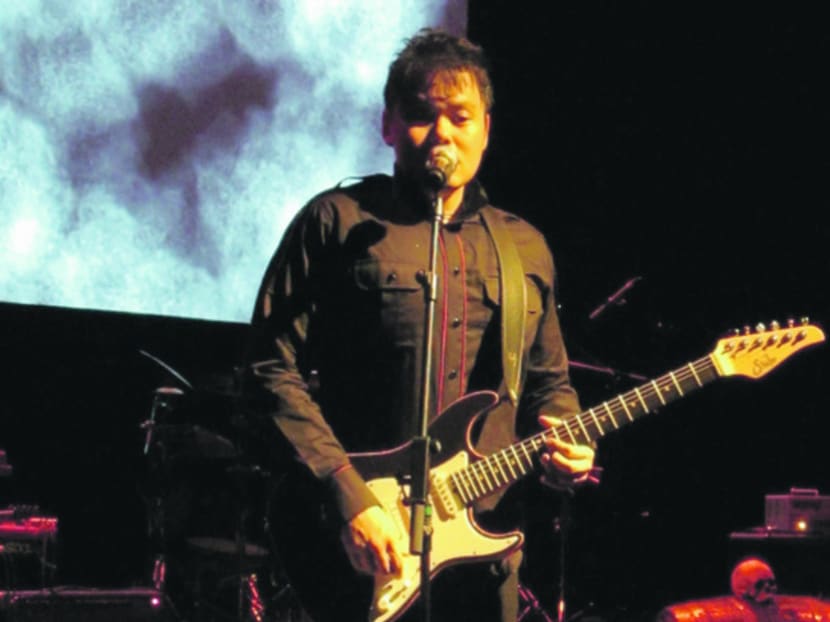
SINGAPORE — Here’s something that might raise a few eyebrows: Flip through the teaser guide to this year’s Singapore Writers Festival and the very first event you’ll see on the list is a double-bill concert featuring homegrown instrumental post rock bands In Each Hand A Cutlass and I Am David Sparkle.
Yes, you read that right: Singapore’s annual literary festival is hosting a couple of bands who, while sporting names that sound like titles of a young adult novel and quirky hipster memoirs, respectively, will play songs with no lyrics whatsoever — including the festival’s theme song titled The Paper, The Pen And A World Began, which also has no lyrics.
When asked what wordless instrumental rock bands were doing at an event with words at its core, new fest director Yeow Kai Chai told us: “It’s non-verbal but it’s also the language of music.”
And according to In Each Hand A Cutlass guitarist Sujin Thomas, when Yeow had approached them to write the theme song, he had explained that the idea was to approach music as composition. “That it’s songwriting without words,” he said.
MUSIC IS MY RADAR
If this is any indication, we can certainly expect a slightly different festival edition from what we’ve been used to.
On the music-related front, the festival is also welcoming buskers Lorong Boys, New Zealand singer-songwriter Hollie Fullbrook, and a local performance quartet called Wobology, which will “trade spacey and reggae vibes”. The songwriting event from previous editions has been given a shake-up: Titled Dimensions & Demons, it’s described as a “creative mash-up” between musicians and writers, who will collaborate to make works from scratch. The festival is also putting seminal music magazine BigO in the spotlight in one panel discussion.
Elsewhere, genre-bending events are taking place: One of the festival highlights is a 12-hour all-nighter event called What I Love About You Is Your Attitude Problem, a multi-genre event presented by Checkpoint Theatre. Somewhere else, dance great Mrs Santha Bhaskar is transforming a couple of poems into a dance piece.
And even in the case of invited poets, sometimes it’s not quite so clear-cut: Canadian poet Christian Bok uses Lego bricks and Rubik’s Cubes for his poetry, has encoded a poem within a DNA sequence and has created languages for shows such as Earth: Final Conflict.
This whirlwind of stuff has already resulted in a column piece in The Straits Times warning that by having a genre-bending programme, the festival “flirts with the danger of forgetting about its core — the writers”.
This sounds somewhat premature considering there are more than 300 events and more than 300 participants — including “proper” writers — to choose from. (And we also wonder what the likes of Leonard Cohen, Patti Smith, The Decemberists’ Colin Meloy or B-Quartet’s Bani Haykal — musos and writers all — would think about such a comment.)
Besides, it’s not as if scanning the festival’s website or guide has turned into an exercise in head-scratching — and, in fact, we’re quite excited how it has highlighted important but often overlooked areas in literature, such as translation and even creative writing by migrant workers.
BREAKING DOWN BARRIERS
But even if that impression stands, Yeow, who is himself a music reviewer for The Straits Times as well as one of the literary scene’s most adventurous poets, remains unperturbed.
“Essentially, I wanted to break down barriers between genres, languages and audiences,” he explained. “Does it only have to be from a book? Perhaps you can access (literature) from other channels and media, through music or drama. That might be one way for some people to be inducted into the world of literature.”
And in a sense, despite how different this year’s edition may feel to some, one could argue that it’s simply characteristic of contemporary festivals that eschew checklists and strict criteria.
Yeow cited Wales’ Hay Festival, a literary festival that includes a battle of the bands(!). Closer to home is next month’s inaugural Neon Lights Festival, which bills itself as a music-meets-art event. And let’s certainly not forget the Singapore International Festival Of Arts, which, under the leadership of Ong Keng Sen, has had people’s perceptions of arts genres doing somersaults.
As someone who covers the various types of arts in Singapore, I still notice a kind of silo scenario, where artists from different fields rarely get together, much less collaborate. And, by extension, audiences rarely overlap, too.
By introducing different genres into a literary festival — which he also describes as a “festival of ideas”, although there was a sense of it already being so during the latter part of former fest director Paul Tan’s tenure — Yeow wants to bring different kinds of audiences into the fold. “Rightly or wrongly, some people might have the perception that the festival is only for literary people. So we’re reaching out to audiences who’ve never come to the festival before.”
But this is partly a gamble and quite a challenge — especially if one goes by the benchmark set by the last edition, which drew 19,600 people to a highly popular event that had marquee names like Paul Theroux. Former fest director Tan, who ran it for four editions, had transformed the event into a well-oiled machine that was friendly to families, thinkers and hipsters.
POPULAR VS ADVENTUROUS
One of the perennial issues festivals here have had to grapple with is the balance between being popular and being adventurous; just ask the folks behind the old Singapore Arts Festival, which often had to deal with drawing in the crowds, usually through marquee names.
Yeow’s inaugural edition — in which, incidentally, he already had to deal with one mini-controversy regarding the protests surrounding the dropped sex scandal-beleagured poet Sitok Srengenge — doesn’t have one.
But while he’s open to having big names (which festival wouldn’t?), he’s not losing sleep over it. In fact, Yeow is taking a leaf out of yet another of Singapore’s adventurous and established festivals and the direction it had forged for itself through the years.
“One of the lessons I’ve learnt from the Singapore International Film Festival is it made an effort to reach out to new film-makers in the region, and because of that, it managed to become the platform where new South-east Asian films and film-makers were discovered,” he said. “I find that philosophy rich and meaningful. We’re not in Europe or the US, which poses a lot of obstacles in a very real terms such as convincing a lot of writers to come over. But if you become a festival that is important in the region, then you’ll become a magnet.”
Of course, the proof of the pudding is in the eating, which we’ll all be doing by the end of the month. But right now, we’re intrigued by this Singapore Writers Festival’s seemingly new vibe. And who knows? Maybe in the next few editions, we’ll find some graffiti artists in the line-up.
After all, in some circles, some of them are also called writers.
The Singapore Writers Festival runs from Oct 30 to Nov 8. Tickets for the festival pass at S$20. For more info, visit https://www.singaporewritersfestival.com










